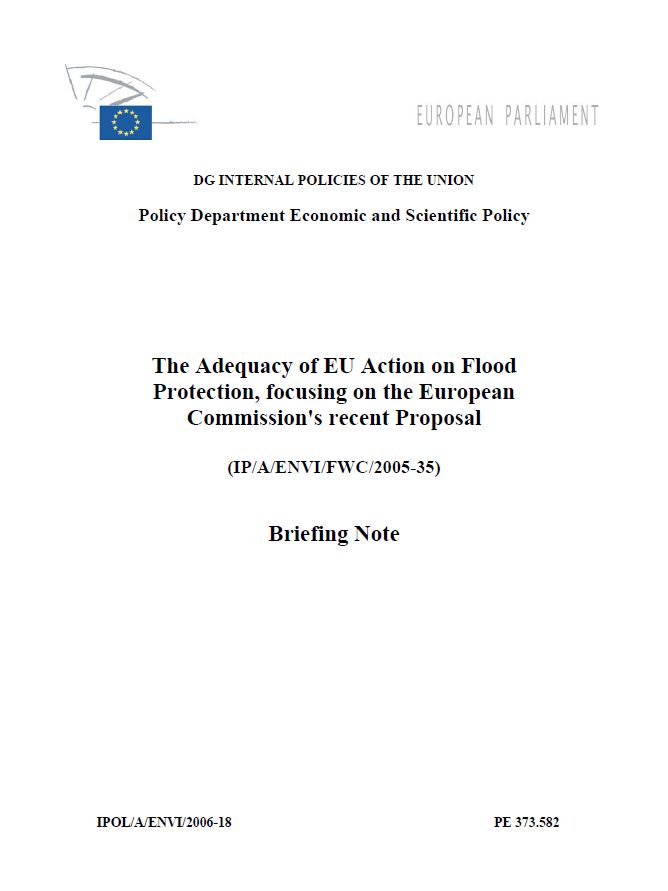Options for Sustainable Food and Agriculture in the EU
Technology options for feeding 10 billion people
- Publication
- Citation
Underwood, Evelyn; Baldock, David; Aiking, Harry; Buckwell, Allan; Dooley, Elizabeth; Frelih-Larsen, Ana; Naumann, Sandra; O’Connor, Clementine; Poláková, Jana; Tucker, Graham (2013) Options for sustainable food and agriculture in the EU. Synthesis report of the STOA Project 'Technology Options for Feeding 10 Billion People’. Institute for European Environmental Policy, London/Brussels.
Global population growth, climate change, shifting consumer patterns, competing demands on and the environmental impacts from agricultural land use – the convergence of these issues places food security and sustainable land use in a precarious balance. European agriculture and food systems will be challenged by these issues in the coming decades. Ecologic Institute contributed to the report 'Technology Options for Feeding 10 Billion People' commissioned by the STOA Panel of the European Parliament, which outlines the EU's role and potential options for responding to these challenges. The report is available for download.
This report has been prepared as part of the framework contract for the European Parliament (STOA-unit). In total five detailed studies focusing on different areas of concern were commissioned, including:
- State of the Art Report on 'Options for Sustainable Food Processing'
- Plant Breeding and Innovative Agriculture
- Options for Cutting Food Waste
- Interactions between Climate Change & Agriculture and between Biodiversity & Agriculture
- Recycling Agricultural, Forestry & Food Wastes and Residues for Sustainable Bioenergy and Biomaterials
Ecologic Institute played a major role in the study "Interactions between Climate Change & Agriculture and between Biodiversity & Agriculture," collaborating with BIO Intelligence Service, KIT (Karlsruhe Institute for Technology) and VU-IVM (Vrije Universiteit Amsterdam - Institute for Environmental Studies), under the lead of the Institute for European Environmental Policy (IEEP).
The Synthesis Report combines the results from the five detailed studies and analyses methods for increasing agricultural productivity while also building resilience to the effects of climate change and mitigating agriculture's contribution to global greenhouse emissions. It also provides an overview of the studies' results and options regarding topics such as reducing biodiversity decline, increasing resource efficiency in the food sector, eliminating food waste, and other innovative technology options such as biotechnology. The report and studies considered the state of play today and some of the key developments on the horizon moving towards 2050. Thus, various EU common policies addressing environmental and agricultural issues were identified and assessed for their impact on increasing the sustainability of food and agriculture in the EU. For instance, the reformed Common Agricultural Policy places greater emphasis on environmental protection, aiming to preserve the natural resources on which agriculture depends. Competing pressures were also identified, e.g., efforts to increase productivity and alternate uses of crops for bioenergy, which could influence the success of such policy mandates. The options presented contribute to the final conclusion of the report – we must produce more with less in Europe while simultaneously reducing waste for a more efficient, environmental food system.
The Synthesis Report and the five detailed studies were presented in a workshop at the European Parliament on 4 December 2013. The event was hosted by the MEPs of the STOA unit who commissioned the work and around 100 people attended, including those affiliated with farmers associations, agribusiness companies, food retailers, NGOs, policy staff and researchers from the Commission and the Parliament, and students.
All studies (detailed assessment studies and synthesis report) are available for download on the European Parliament STOA website.

